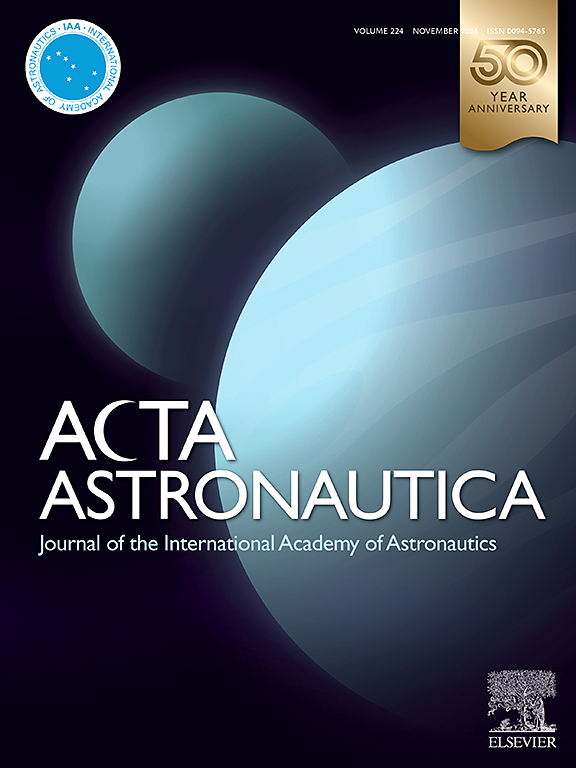Analytical propagation solution for planet-displaced orbit in the presence of third-body perturbations
IF 3.1
2区 物理与天体物理
Q1 ENGINEERING, AEROSPACE
引用次数: 0
Abstract
Planet-displaced orbits (PDOs) play an important role in space missions such as solar observation, gravitational wave detection, and near-Earth asteroid detection. To propagate the PDOs accurately and efficiently, this paper develops an analytical solution considering the Solar central gravitational force and the time-varying third-body perturbation of the corresponding planet. First, an approximated third-body perturbation model is established based on the planet displacement angle (PDA), which is found to be the core variable affecting the evolution of the orbit. The model can describe both secular and periodic terms of the third-body perturbation accurately. Then, based on the established third-body perturbation model, a two-step procedure is developed to iteratively derive the analytical orbit propagation solution of the PDO via the Picard iteration method. The analytical solution is successfully applied to propagate the orbit in an Earth-trailing orbit case: the Laser Interferometer Space Antenna (LISA). Simulation shows that the analytical orbit propagation solution can accurately predict the orbit in both the long-time and short-time cases. The relative error is less than 0.1% in 10 years. The proposed analytical solution can be potentially useful in designing and optimizing PDOs.
求助全文
约1分钟内获得全文
求助全文
来源期刊

Acta Astronautica
工程技术-工程:宇航
CiteScore
7.20
自引率
22.90%
发文量
599
审稿时长
53 days
期刊介绍:
Acta Astronautica is sponsored by the International Academy of Astronautics. Content is based on original contributions in all fields of basic, engineering, life and social space sciences and of space technology related to:
The peaceful scientific exploration of space,
Its exploitation for human welfare and progress,
Conception, design, development and operation of space-borne and Earth-based systems,
In addition to regular issues, the journal publishes selected proceedings of the annual International Astronautical Congress (IAC), transactions of the IAA and special issues on topics of current interest, such as microgravity, space station technology, geostationary orbits, and space economics. Other subject areas include satellite technology, space transportation and communications, space energy, power and propulsion, astrodynamics, extraterrestrial intelligence and Earth observations.
 求助内容:
求助内容: 应助结果提醒方式:
应助结果提醒方式:


